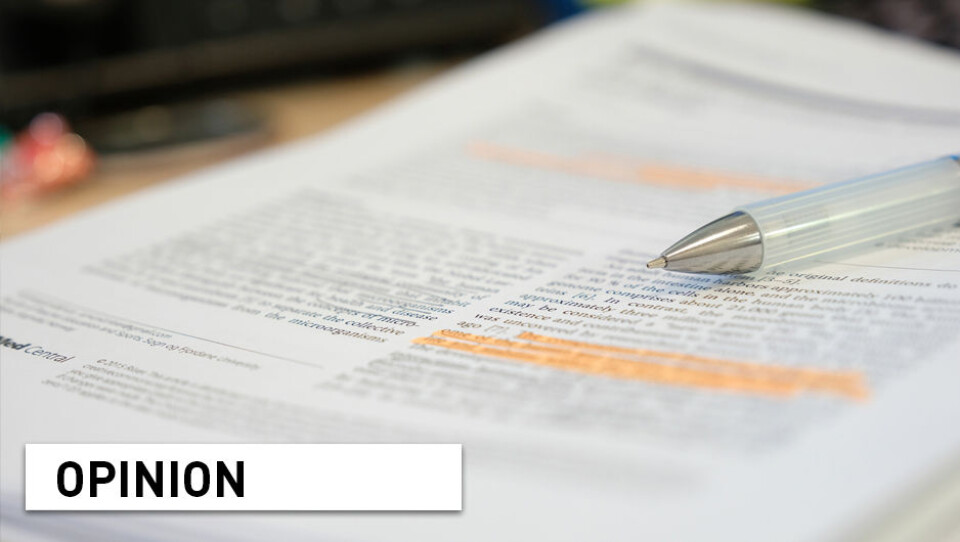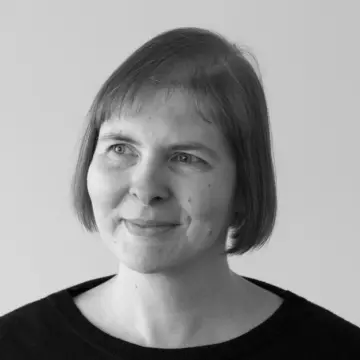Opinion:

The naïveté of Academia:
How Plan S could let pseudoscientific and predatory publishers take advantage of researchers
OPINION: Plan S is naïve in its approach to open publishing, making scientific articles available for re-use by whoever may wish to do so. Scientists need to retain the right to decide where their works are published.
Having for years seen how academics do horrendous amounts of free work for academic journals, who then charge huge subscription fees from the institutions of the same academics, giving them a margin of profit no-one else in publishing can dream of, we have fully supported the goals of European research agencies’ initiative for open-access science publishing - Plan S.
We support it both from an economic point of view, but also from a deeply democratic idea that knowledge should be freely available for all.
There are many people who might read, understand and make use of academic research outside of the academic community that currently mostly has access. There are many academics and students at universities in low-income countries that cannot afford the journal subscription fees, and there is a large group of professionals (engineers, teachers, medical professionals, etc.) that could make use of research in their work, who mostly do not work in institutions with access to scientific journals.
Plan S could help rectify this.
Not enough high-quality open access journals
There are, however, a couple of problems with Plan S.
One is the process itself - it restricts the freedom of authors to publish in the journals they would prefer from a purely scientific point of view. This should be a purely temporary problem, if Plan S is successful in turning the traditional journals into open access ones. The most demanding task will probably be to assure a sufficient number of high-quality open access journals for the humanities and the social sciences.
There is also still a problem with the publication fees. If standardizations are not implemented, the most prestigious journals will still be able to charge large publication fees, thus restricting who can publish in them. The current "transitional deals" that have been made are not entirely positive signals when it comes to this problem.
To solve this problem, we need a larger plurality of high-quality journals, so that no single journal can use its position as the one prestigious journal within a field to pressure fees upward.
But the current systems for evaluating the quality of journals are conservative. That is why initiatives like the DORA declaration are so important. DORA is an international initiative to reduce the use of simple quantitative indicators, like “impact factor” in research assessment.
However, we see that even governments that have formally embraced the DORA declaration, like the Norwegian government, still resist changing their own point-based system, partially financing universities, colleges and research institutes based on publication in journals sorted into different quality levels. Academic communities in Norway will thus be financially punished for trying to contribute to establish new high-quality journals, which again will undermine the government's own goals in Plan S.
Predatory publishers can abuse Creative Commons-licenses
Another problem with the current Plan S is the recommendation of Creative Commons-publication, publishing scientific articles under open licensing that permits re-use.
We are, in general, supporters of Creative Commons - in many ways it is the basis of all scientific work. Within science itself the right to quote is mostly sufficient to be able to see further, standing on the shoulders of giants.
The ideals behind CC publishing are thus great, but we believe they are a bit naive in regard to the society we live in, and many of the actors in this society - including anti-science actors. We believe that the current models of CC publishing promoted by Plan S make it possible for scientists to become useful idiots for for instance pseudoscientific and predatory publishers.
Plan S currently opens up for three CC versions: CC0, which is completely open with no restrictions of use, with the additional restrictions BY, where the author must be attributed, and SA, "share alike" which demands the subsequent product to be shared in the same way.
With a CC0 or CC-BY license, a profiled scientist could see a predatory publisher publish the authors "Selected works" or "collected works", sell it en masse on Amazon, with the author getting not a cent of the profits, and perhaps being very unsatisfied with the presentation, selection and/or collection as well. The predatory nature of the current publication system might look upon such an activity in awe.
Is this event a far-fetched idea? Hardly. Predatory publishers are already selling books compiled from Wikipedia articles. The information of the source is hidden at the bottom of the product information in the digital bookstore. Such a predatory activity can, however, be hindered by the addition of a non-commercial restriction (NC), but Plan S does not currently accept that option.
Could put good science in a bad context
There are also other ways of being predatory than the financial one. The world is full of anti-scientific groups who would love to be able to abuse the work of a renowned scientist for their cause, and given the opportunity - they will.
There is a naïve idea in some scientific communities, that a text stands on its own. That the contents of a paper is the same however it is transmitted. On the surface this is so, but in the real world all communication is contextual. The way a text is read is influenced by where it is read, and what other texts it is put in context with.
A climate scientist who has written a paper being critical to some aspect of some climate model could thus risk being published on the website of a climate denialist group, or published in a book along denialist authors, completely against their will. Random readers might not be aware of this and will read the paper in a completely different context, thus giving denialists credibility, but also reducing the credibility of the scientist in the eyes of many readers.
One might imagine similar things in other anti-science groups, like anti-vaccine, or groups promoting the view that low frequency electromagnetic radiation represents a health hazard.
Finally, predatory journals could include CC-papers from established authors to (seemingly) increase the credibility of their journals. (Which similarly might cause loss of credibility for the author).
Scientists should be able to say no
Some might think these examples are far-fetched. We would argue that they do not know these pseudoscientific and predatory communities, and the lengths they are willing to go to.
One could argue that an author's moral rights could be used to prevent different predatory uses, but Creative Commons states that their licenses "preserve moral rights" but "allow uses of the work in ways contemplated by the license that might otherwise violate moral rights." So, the question is very open as to whether an author can prevent the uses described above under a CC0, CC-BY or CC-SA license.
We believe that data and measurements as well as computer programs can be unproblematically shared under CC0 - but text is something different and should be better protected. It is not indifferent in which order the paragraphs in a text are rendered - and the context is paramount.
The CC-licenses promoted by Plan S do not consider the economy of credibility of the context of scientific publishing. For some, probably the vast majority of scientists, this might be a very remote question. But this can be vital for some researchers, particularly renowned scientists and particularly within politicized fields, and they should therefore be able to say no to someone wishing to publish their work when the publication is in a context that is in conflict with the authors scientific or ethical principles.
Share your science or have an opinion in the Researchers' zone
The ScienceNorway Researchers' zone consists of opinions, blogs and popular science pieces written by researchers and scientists from or based in Norway. Want to contribute? Send us an email!









